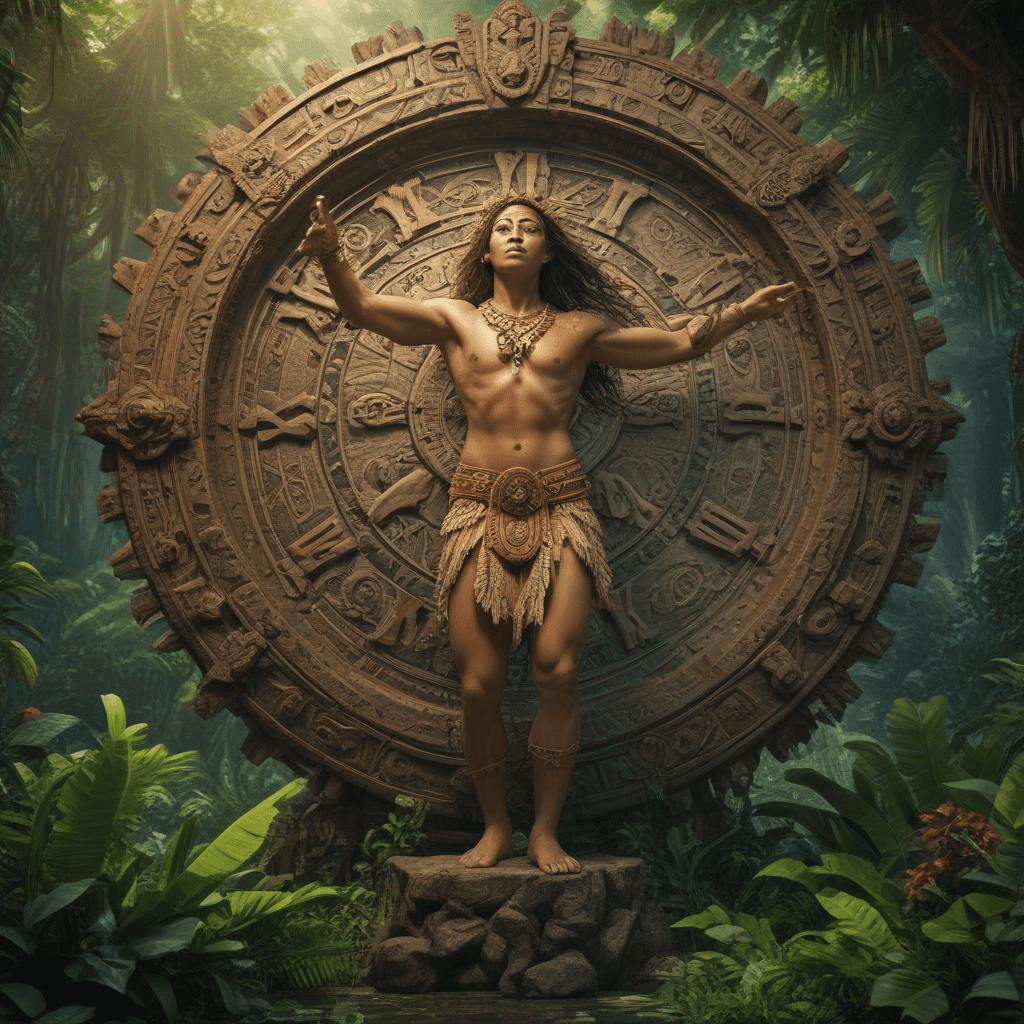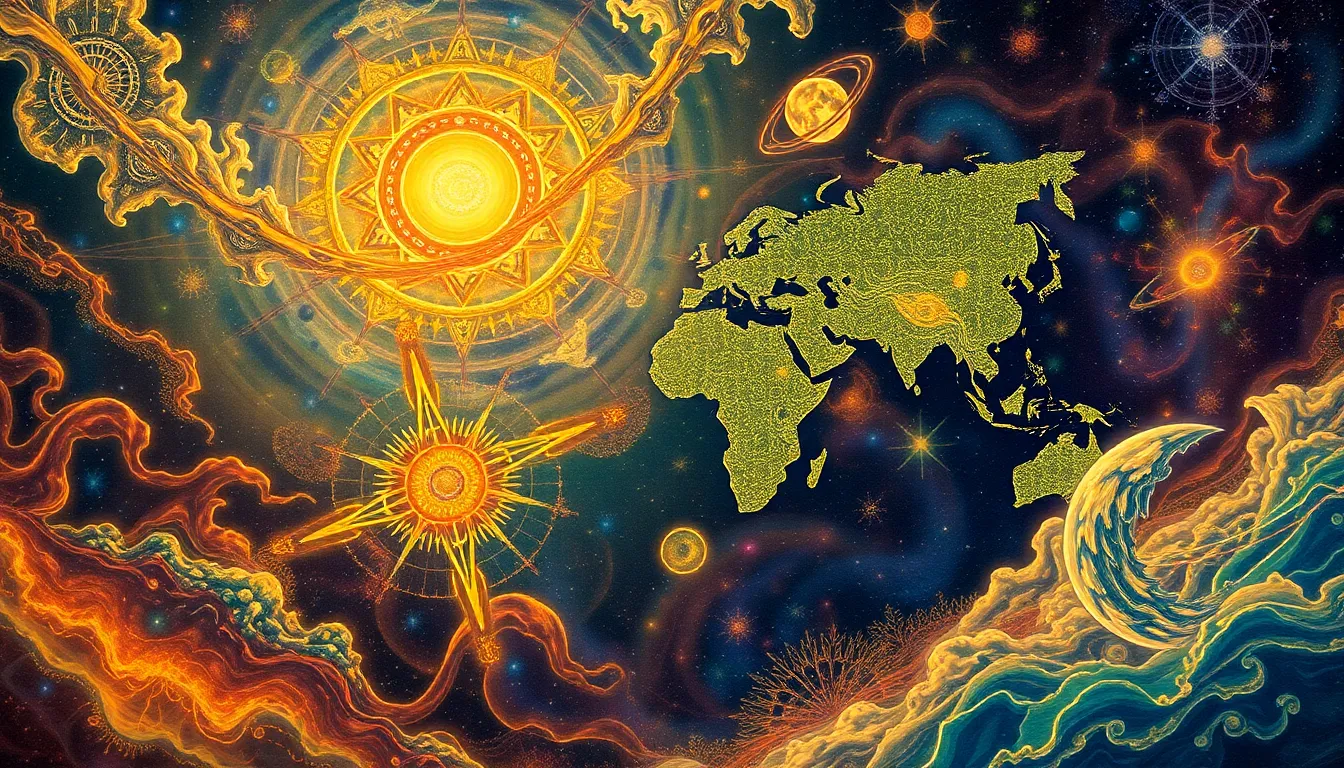Exploring the Concept of Time in Polynesian Mythology
1. Introduction
In the vast expanse of the Polynesian realm, time unfolds as an intricate tapestry of interwoven threads, each strand imbued with unique significance and purpose. Polynesian mythology, steeped in the wisdom and beliefs of ancient seafarers, unveils a multifaceted understanding of time, revealing its profound impact on the human experience within the interconnected web of the cosmos.
2. The Timeless Void: The Primeval State
Before the dawn of creation, there existed a timeless void, an empty expanse known as "Po." This primeval state represented the nothingness from which all things emerged. It was a realm of pure potentiality, a boundless expanse where time had no meaning or measure.
3. Cyclical Time: The Rebirth and Renewal of the Cosmos
From the depths of Po emerged the cyclical rhythms of time. The endless cycle of birth, decay, and renewal characterized the Polynesian worldview. Time moved in a circular pattern, with each celestial cycle mirroring the natural processes of life and death. The sun's journey across the sky, the waxing and waning of the moon, and the changing seasons all reflected the cyclical nature of time, reminding Polynesians of the transient nature of existence.
4. Linear Time: The Progression of Events
Alongside the cyclical rhythms, Polynesian mythology also recognized the linear progression of time. This linear dimension was marked by the passage of events, the unfolding of history, and the accumulation of knowledge and experience. Time became a measure of change and transformation, a river that flowed relentlessly forward, carrying with it the memories of the past and the promise of the future.
5. Time as a Fluid Entity: Flexibility and Adaptability
Time in Polynesian mythology was not a rigid construct, but rather a fluid entity that could be shaped and adapted to suit the needs of the present. It could be stretched or compressed, accelerated or decelerated, depending on the circumstances. This flexibility allowed for the reconciliation of different perspectives and the accommodation of new experiences within the ever-evolving tapestry of time.
6. Time and the Ancestors: The Importance of Genealogy
Time in Polynesian mythology was inextricably linked to the veneration of ancestors. Genealogical lineages traced the passage of time, connecting the present to the past and honoring the legacy of those who came before. Ancestors were believed to possess a profound connection to the cosmos and the cycles of time, their wisdom and guidance shaping the lives of their descendants.
7. Time and the Cosmos: The Relationship between the Human and Divine
Polynesian mythology recognized the interconnectedness between time and the cosmos. The celestial bodies, the natural elements, and the human world were all believed to be part of a grand cosmic tapestry. Time played a crucial role in maintaining the balance and harmony of this intricate cosmic system, orchestrating the rhythms of life and the cycles of the universe.
8. Time and the Hero: The Quest for Immortality
The heroes of Polynesian mythology often embarked on epic quests for immortality, seeking to transcend the limitations of time and mortality. These quests typically involved perilous journeys to distant lands, encounters with mythical beings, and the acquisition of sacred knowledge. The heroes' ultimate goal was to break free from the cycle of life and death, achieving a state of perpetual existence.
9. Time and the Trickster: Subverting Time's Order
Trickster figures, such as Maui, played a significant role in Polynesian mythology by challenging the established order of time. Through their cunning and mischievous nature, tricksters disrupted the flow of time, causing chaos and confusion. They often manipulated time to their advantage, using it as a tool to outwit their opponents and achieve their goals.
10. Conclusion: The Enduring Legacy of Polynesian Time Concepts
The concept of time in Polynesian mythology is a complex and multifaceted tapestry, reflecting the deep philosophical and spiritual beliefs of ancient Polynesian cultures. The cyclical rhythms, linear progression, fluidity, and interconnectedness of time continue to resonate with contemporary Polynesian communities, shaping their understanding of the world and their place within it. The enduring legacy of Polynesian time concepts serves as a testament to the profound wisdom and creativity of these ancient seafaring peoples.
FAQ
What is the concept of time in Polynesian mythology?
Time in Polynesian mythology is a multifaceted concept that encompasses cyclical rhythms, linear progression, fluidity, and interconnectedness, reflecting the deep philosophical and spiritual beliefs of ancient Polynesian cultures.
How did Polynesians view the relationship between time and the cosmos?
Polynesian mythology recognized the interconnectedness between time and the cosmos, believing that the celestial bodies, natural elements, and human world were all part of a grand cosmic tapestry. Time played a crucial role in maintaining the balance and harmony of this system.
What role did ancestors play in Polynesian concepts of time?
Ancestors were highly revered in Polynesian mythology, as genealogical lineages traced the passage of time and connected the present to the past. Ancestors were believed to possess a profound connection to the cosmos and the cycles of time, their wisdom and guidance shaping the lives of their descendants.
How did trickster figures challenge the order of time in Polynesian mythology?
Trickster figures, such as Maui, played a significant role in Polynesian mythology by challenging the established order of time. Through their cunning and mischievous nature, tricksters disrupted the flow of time, causing chaos and confusion, and often manipulated time to their advantage.



